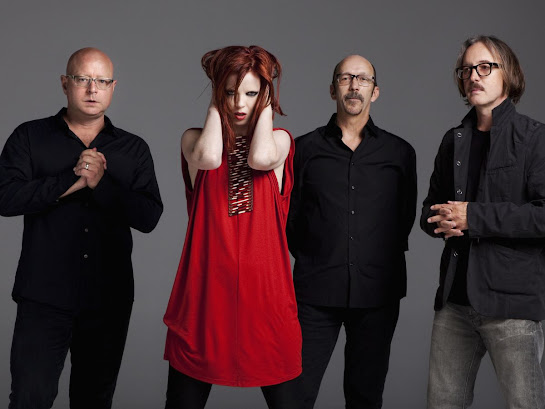#Disappear Fear #Sonia Rutstein #folk rock #folk pop #alternative folk #indie folk #power pop #worldbeat #singer-songwriter #1980s #1990s
Hi Sonia, we’re thrilled to have a chance to learn your story today. So, before we get into specifics, maybe you can briefly walk us through how you got to where you are today?
I was five years old when my Aunt Laura took me out of kindergarten to attend the Flower Mart near the Washington Monument on Charles Street in Baltimore. It was around noon and for the first time, I saw Louis Armstrong perform, Hello Dolly. I was quite short so looking up at him I was looking directly into the sun rays was like swords of light into my eyes around the black outline of a man playing the trumpet and singing.
It was the first time I saw the sound from a radio come alive. It was REAL. I believe at that moment I decided I wanted to make music that could be heard on the radio and to be real on stages around the world. It made me feel good and that’s what I wanted to do, make folks feel good. I started writing songs when I was 14 and playing downtown at the dingy and famous Peabody Bookstore. my mother would drive me to the gig and my sister and I were paid $50 for two 40 minute sets.
It was a whole lot better than the $1.40 an hour I was making pizza and sundaes at the Beef Inn. So making music was my dream and has become my destiny but that is a bit of how it started. How I got to where I am I am today… was practice practice practice a bit of luck, a lot of naivety, determination, and perseverance. A publishing company in London heard my first record and flew me and my sister (singer/business partner) over to England and we signed our first publishing deal. We continued to play and amass a nice following in the USA and now around the world.
Can you talk to us a bit about the challenges and lessons you’ve learned along the way? Looking back would you say it’s been easy or smooth in retrospect?
The most important thing to me was/is to be true to myself. It is a high price to pay. But it is the only way I can sleep well at night. As a kid, I would see all this glitter and gold on TV Stevie Lawrence and the Las Vegas guys, and that sort of thing and it seemed so phony. I wanted REAL. So folk music with harmonies and guitars that didn’t need a bunch of electricity just authenticity seemed the way to go. My sister Cindy and I had already been singing together for 25 years so starting our own band, disappear fear was a logical step.
But female and out lesbian independent singer-songwriters were not at all present in the local national or international pop or rock or folk music scene. There were out gay performers in the gay market but we wanted to be 100% inclusive so we had to show the world and essentially audition at every club and radio station we stepped foot into and we did just that. Once the folks started coming out we had the upper hand we could call the shots and make the show really great. We did get ripped off financially. There was a club in downtown Baltimore we had a CD release concert and our contract said we got 80% of the door and the owner got 20% of the door and the whole bar tab. We had a counter at each door entrance that calculated our earnings to be $2600.
But at the end of the night, the dude gave us $500.00. we told him that he had shorted us and he said, “that’s enough money for two girls in one night”. The police station was right around the corner and we did file a report but nothing happened and we went back out on the road so no follow-up. Once also in Baltimore, we had a 2 monthly contract with a bar for every Wednesday night. The first night we packed the place and then someone yelled, “KiSS iN” and all these lesbians started kissing. and we got fired at the end of the night. The owner said he, “did not want THOSE kinds of people in his club”. We took the case to court and we met with The Council for Human Relations- they offered us in settlement $2000 to amend the $ we lost but they did not apologize for their homophobic and blatant prejudice.
We did not accept the settlement. At this time. I was still working for the Rape Crisis Center in Baltimore City. My dear friend. Lynnel said to me, “Sonia -show business is crazy and cutthroat. You can either spend your time chasing down the bad guys or move on”. We moved on. Touring in the southeast in the early 90s the sound guys wouldn’t even look you in the eye. They wanted a dude to talk to tell them what was needed for that night tech-wise. And it was not limited to the south it was prevalent across the country. And then on the other end of the career spectrum struggles - once you start making a little money the evil wanna-be’s wanna beat and take advantage of you. I find it is best, to be honest. In the celebrity-mania culture that we live in it is valuable to know the difference between dream and reality. You can’t really buy success - your heart and soul know the difference.
From: https://voyagebaltimore.com/interview/daily-inspiration-meet-sonia-disappear-fear-rutstein/























